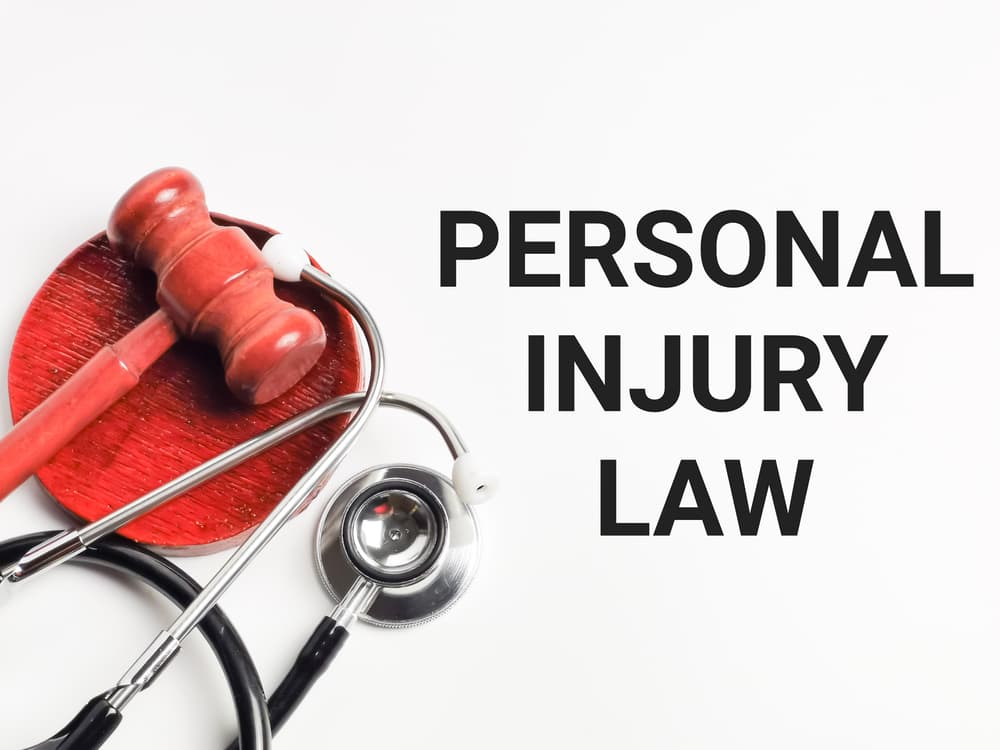How to Choose a Personal Injury Lawyer
How to Choose a Personal Injury Lawyer
Dealing with a personal injury can be tough, and finding the right lawyer to help you can be even tougher. Choose the best personal injury attorney after any car crash or a slip and fall accident injures you.
An experienced Orange County personal injury attorney has the knowledge and experience to navigate legal complexities, negotiate with insurance companies, and secure the compensation you deserve.
Let’s break down the necessary steps and what to consider to find the right lawyer.
Schedule a Free Initial Consultation
Do Your Research and Ask for Referrals
Conduct research and seek referrals are key steps when searching for a lawyer. Explore online resources to find the right lawyers for your case who focus on your area of need. Just as you wouldn’t let an OBGYN perform brain surgery, you shouldn’t hire a tax lawyer to pursue your personal injury claim.

Ask friends, family, or colleagues for recommendations based on their personal experiences. Other professionals like accountants or real estate agents can also offer valuable referrals. Check their credentials, experience, and client feedback.
With a short list of potential lawyers, schedule consultations to discuss their approach, fees, and communication style. Combining research and referrals ensures you choose from a pool of top lawyers.
How to Interview a Lawyer
Interviewing several of the lawyers referred to you is a good place to start.
Here are some things to think about:
- Identify your needs: Begin by clearly defining your specific legal needs and the area of specialization you require. Understanding the nature of your case is the foundational step that guides your attorney search.
- Create a list of potential lawyers: Compile a comprehensive list of potential lawyers from recommendations by trusted sources and online resources like legal directories and review platforms.
- Check qualifications and credentials: Dig deeper into the qualifications and credentials of the lawyers on your list. Investigate their educational background, years of experience, any special certifications or awards they have received, and whether they have faced disciplinary actions or ethical complaints.
- Initiate initial contact: Schedule initial consultations. Discuss your personal injury case, gauge their responsiveness, and assess their willingness to take on your legal matter.
- Prepare relevant questions: Before your initial consultations, prepare a list of pertinent questions that cover critical aspects of the attorney’s practice.
- The consultation: Evaluate the lawyer’s communication skills and professionalism. Pay attention to how well they explain legal concepts and whether you feel comfortable sharing details about your case.
- Assess compatibility: Assess whether you feel comfortable working with the firm and that all personalities mesh well. To building trust and a good working relationship, consider their attentiveness to your concerns and whether their guidance aligns with your goals.
- Follow-up: Reflect on your impressions after the initial consultations and research. Consider the strengths and weaknesses of each lawyer you consult to make an informed decision aligned with your needs and priorities.
Interviewing a prospective lawyer involves understanding your needs, researching candidates, asking questions, assessing compatibility, and checking references.
Make an informed decision and build the successful attorney-client relationship you need to win a satisfactory settlement.
Assessing Your Legal Needs After a Personal Injury
Following a personal injury, it’s essential to promptly assess your legal needs to determine whether a personal injury lawyer is necessary.
Check out these tips to evaluate your situation:
- Understand your injury: Consider the injury’s severity, cause, and impact on your life. This initial assessment helps gauge the potential significance of your case.
- Assess liability: Determine if another party’s negligence caused your injury. Establishing liability is a critical factor in pursuing a personal injury claim.
- Evaluate damages: Calculate medical expenses, lost wages, and potential future costs resulting from your injury. This financial assessment aids in understanding the possible compensation you may be entitled to.
- Check insurance coverage: Review your insurance policies to understand the extent of your coverage and any potential gaps.
- Consult medical professionals: Seek advice from medical experts to comprehend the long-term implications of your injury. This professional insight is valuable when evaluating your case.
- Document the incident: Gather essential evidence, including accident reports, photographs, witness statements, and medical records. This documentation can support your claim.
- Learn legal deadlines: Adhere to the statute of limitations in your jurisdiction, as missing these deadlines can jeopardize your ability to pursue a claim.
- Determine the complexity of your case: Consider whether the complexity of your case warrants legal representation. Complex cases may benefit from the expertise of a personal injury attorney.
- Consult an attorney: Schedule a meeting with a personal injury attorney to assess the merits of your case and explore your legal options.
- Weigh benefits and costs: Weigh the potential benefits of pursuing a personal injury claim against the associated costs and stress. Understanding the possible outcomes is crucial in making an informed decision.
- Explore alternative dispute resolution: Explore quicker resolution methods like mediation or negotiation, which can lead to a faster and less adversarial outcome.
Assessing your legal needs helps you make an informed decision about pursuing a personal injury claim. Consulting an attorney early can provide clarity and guidance to ensure the best possible outcome for your case.
Questions to Ask a Potential Personal Injury Lawyer
Before hiring a personal injury lawyer, ask the right questions during the consultation to ensure they are the right fit for your case:
- Experience in personal injury cases: Inquire about their years of practice and how many personal injury cases they have handled.
- Handling similar cases: Ask about their experience and success rate with cases like yours.
- Personal involvement: Clarify whether they will personally handle your case or delegate it to someone else within their firm.
- Communication: Discuss their communication approach and the frequency of updates.
- Fee structure: Gain a clear understanding of their fees, whether they work on a contingency basis, and if there are any additional costs to consider.
These questions provide valuable insights into the lawyer’s suitability for your case and their ability to provide effective representation. By addressing these topics, you can make an informed decision when choosing the best legal counsel.
Why You Need a Personal Injury Lawyer

Experiencing a personal injury, whether it’s due to a car accident, slip and fall, or a workplace incident, can be life-altering, bringing about physical, emotional, and financial challenges.
The expertise of a proficient personal injury lawyer has myriad benefits, including:
- Legal experience: Personal injury lawyers focus on this complex area, offering the knowledge and experience needed for successful representation.
- Case assessment: They objectively evaluate your case, helping you understand its strength and potential damages.
- Negotiating with insurers: Talking with insurance adjusters is tricky. They want to pay you as little as possible. Lawyers adeptly handle negotiations with insurance companies, working to secure fair compensation so you don’t have to.
- Building a strong case: They excel at gathering evidence, consulting experts, and crafting compelling arguments to improve your chances of a favorable outcome.
- Medical care assistance: Attorneys help you access necessary medical care, even if you lack insurance, ensuring you receive appropriate treatment.
- Maximizing compensation: Lawyers work diligently to maximize your compensation, considering medical expenses, lost wages, future needs, pain and suffering, and other damages.
- Court advocacy: If negotiations fail, lawyers represent you in court, leveraging their expertise to pursue fair compensation.
- Stress reduction: Coping with a personal injury is inherently stressful. Lawyers handle legal matters, allowing you to focus on recovery.
- Peace of mind: When an experienced advocate fights for your rights, it provides peace of mind during a challenging period.
Personal injury lawyers have specific training to get the most out of the legal system. You risk losing a large portion of your settlement when you represent yourself.
Significance of the Lawyer-Client Relationship
A strong lawyer-client relationship is pivotal.
This connection, rooted in trust, communication, and mutual respect, profoundly influences the legal process.
- Trust as the foundation: Trust is paramount. Clients must trust their lawyer’s legal expertise, privacy value, and confidentiality commitment. A trust bond provides essential security during a challenging time.
- Effective communication: Regular, transparent communication is vital. Clients should feel heard and understood, enabling them to ask questions and express concerns. Such communication empowers clients to participate actively in decision-making.
- A recovery lifeline: A good personal injury lawyer acts like a legal guardian so you can concentrate on getting better. They take care of the legal stuff, reducing your worries and letting you focus on your health and emotions.
- Duty of confidence: The attorney-client privilege, based on trust, strengthens this relationship. Clients can share sensitive information confidently, which helps create a complete legal strategy.
Trust, communication, and the duty of confidence are the pillars of the lawyer-client relationship. A personal injury lawyer who values these principles provides diligent representation and peace of mind for clients to focus on recovery.
Common Pitfalls to Avoid When Choosing a Personal Injury Lawyer
Selecting the right personal injury lawyer significantly improves your case.
It’s a straightforward process, but avoid these pitfalls:
- Rushing the decision: Impulsive decisions can lead to selecting an attorney who may not be the best fit for your case. Take time to research and interview potential lawyers thoroughly.
- Not checking qualifications: Assess a lawyer’s qualifications, including education, experience, and licensing. Failing to verify these can result in hiring an inexperienced attorney.
- Overlooking specialization: Ensure the lawyer focuses on your case type, as personal injury law covers various areas.
- Neglecting to ask questions: Ask about the attorney’s experience, approach, communication, and fees during the initial consultation. Not asking these questions leads to misunderstandings and delays.
- Ignoring compatibility: Building a solid attorney-client relationship is crucial. You must feel comfortable and have trust in your lawyer.
- Failing to clarify fees: Understand the lawyer’s fee structure and payment arrangement to avoid financial surprises.
- Skipping references and past cases: Check a lawyer’s track record and client satisfaction through references and past case examples.
- Not reviewing legal contracts: Thoroughly review and understand the lawyer-client agreement to avoid misunderstandings.
- Disregarding conflict of interest: Confirm the lawyer has no conflicts of interest that could compromise your case.
- Underestimating communication: Effective communication with your lawyer is vital. Set clear expectations for updates and discussions.
- Overlooking alternative dispute resolution: Explore options like mediation or arbitration to avoid a trial.
- Choosing based solely on cost: Cost is a factor, but don’t prioritize it over qualifications and experience when selecting an attorney.
Avoiding these pitfalls when choosing a personal injury lawyer ensures a well-informed decision, increasing your chances of a successful outcome.
Should I Hire a Local Lawyer?

Greg Bentley & Keith More Orange County Personal Injury Lawyers in Orange County
What if you click with a lawyer, but they practice in a neighboring city? Law licenses are by state, not city, so you can hire any lawyer in your state, but is a local lawyer better?
While the answer can vary depending on your legal needs, consider these factors when making this decision:
- Familiarity with local laws: One primary advantage of hiring an attorney who practices in your area is their familiarity with local laws and regulations. They understand the nuances of the legal system in your jurisdiction, which can be crucial in navigating your case effectively. Local attorneys are often know local judges, court procedures, and the tendencies of opposing attorneys, all of which can offer valuable insights into your legal strategy.
- Convenience: Hiring a local attorney can also offer convenience. You can easily meet them in person, reducing the need for extensive travel, especially if your case requires frequent meetings or court appearances.
- Community connections: Local attorneys often have established connections within the community, including relationships with other lawyers, experts, and professionals relevant to your case. They leverage these connections to your advantage, providing access to valuable resources and insights.
- Understanding local culture and dynamics: Every region has unique culture and dynamics that can influence legal proceedings. A local attorney may better grasp these factors, which you need to build a persuasive case or negotiate effectively.
Base your decision to hire an attorney where you live, the attorney’s qualifications, your comfort level with their expertise and abilities, and other carefully evaluated legal needs.
Bentley & More LLP are dedicated to helping people with catastrophic injuries find joy in life again. Call us today at (949) 870-3800 to discuss your legal options and right to compensation.


